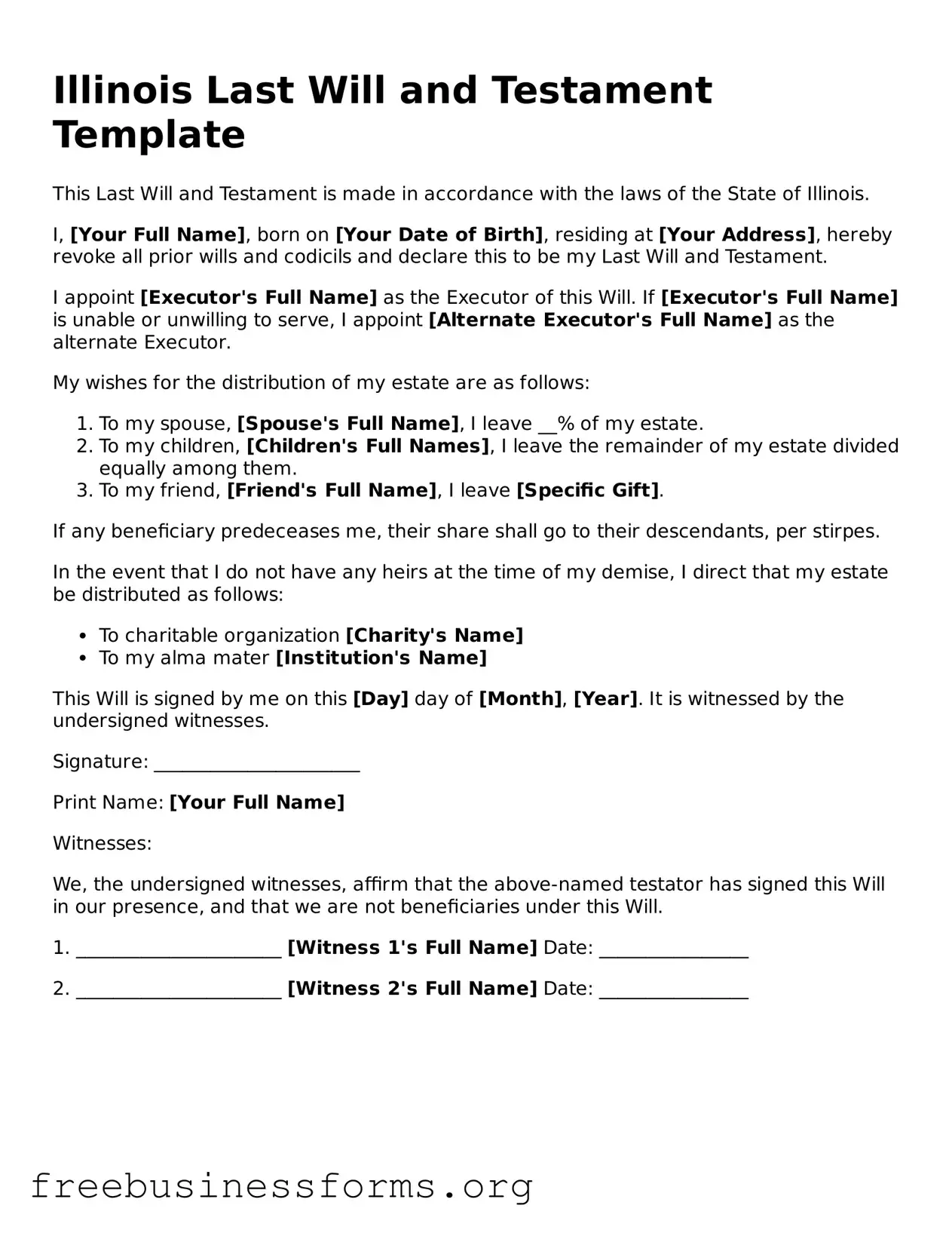Blank Last Will and Testament Template for Illinois
A Last Will and Testament form in Illinois is a legal document that outlines how a person's assets will be distributed after their death. This form allows individuals to express their wishes regarding their property, guardianship of minors, and other important matters. Understanding this form is essential for ensuring that one's intentions are honored and that loved ones are taken care of.
Open Form Here

Blank Last Will and Testament Template for Illinois
Open Form Here

Open Form Here
or
↓ PDF File
Quickly complete this form online
Complete your Last Will and Testament online quickly — edit, save, download.